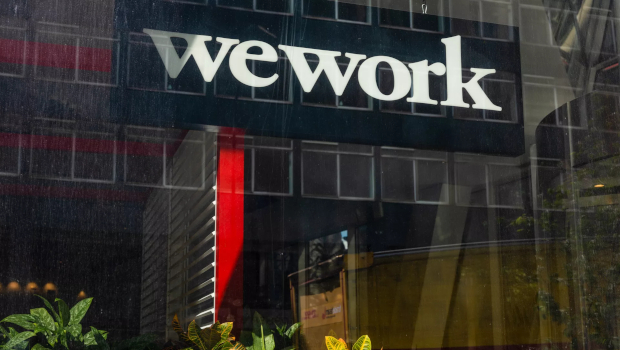
WeWork’s story a mix of blank cheques and empty space signifying nothing
Shares in former ‘tech’ darling WeWork dropped to mere pennies this week following the release of second quarter results revealing a net loss of $397 million (€360.4 million). If that wasn’t enough to panic investors, the company’s own guidance went so far as to state “substantial doubt exists about the Company’s ability to continue as a going concern”.
The real fall from grace for the company came a long time ago, though. Founded in 2008 by Adam Neumann and Miguel McKelvey, WeWork provided office space to start-ups and other small businesses, in addition to a generous helping of start-up gibberish and post-hippy woo. By 2019, it was enjoying a massive inflow of investment cash from Japanese investment company Softbank, an outfit known for blowing outrageous sums of cash on tech companies.
Things did not go well. WeWork’s 2019 stock market flotation was cancelled, with investment funds and individual investors unwilling to stump up for shares, and Softbank forcing Neumann to step down as chief executive.
A flotation did eventually take place in 2021, but through a so-called ‘special purpose acquisition company’ (SPAC) rather than a traditional initial public offering. Also known as a ‘blank cheque company’, a SPAC is a process where a new company that has no actual operations is funded, shares issued, and then a merger initiated with a hitherto unspecified target company, allowing early investors to profit when shares, hopefully, rise. SPACs have been the means by which some of the most curious enterprises have managed to get themselves listed on stock markets in recent years and, needless to say, they do not have a stellar reputation.
Reports that WeWork is today virtually worthless and was once worth $47 billion (€42.74 billion) are technically correct in that Softbank claimed it was worth that. Once it was actually on the stock market, however, the total value of all of its shares at their highest point was closer to six billion. And that was in the middle of a bubble.
In truth, WeWork was a product of the wider macroeconomic environment. With interest rates at zero traditional investment vehicles such as bonds had become useless. At the same time the stock market boomed, buoyed by cheap credit, both for investors and consumers, not to mention dreams of coining it off the back of technology companies. Later, a boom was driven by cash sloshing around thanks to Covid-19 stimulus and lockdown.
But however frothy the valuations of publicly limited companies, at least they can be tracked. The same cannot be said of private equity, which is ‘worth’ what its owners, whether founders of venture capitalists, say it is – or at least what they can get away with claiming. Rather like the value of a house, the value of a private company is entirely notional until someone actually buys it.
WeWork was always overvalued because institutional investors, desperate to find the next big thing and having witnessed rocketing valuations for tech companies – both profitable ones like Apple and Google, as well as growth-at-all-costs cash-burners – convinced themselves that this company that let offices and desks to, among other things, tech companies was itself a tech company.
Positive press coverage undoubtedly helped. In addition, Neumann, by all accounts deeply competitive and charismatic, presented the company as a technology business – and some investors, Softbank included, ate it up. Money does strange things to people’s minds.
Still, how anyone convinced themselves that WeWork was even a novel idea is a mystery. Shared offices have been around for a long time, with Regus alone operating since 1989.
There is money to be made in letting offices. Despite both ongoing turmoil in the office real estate market and the fact that Ireland is, apparently, one of Europe’s most enthusiastic adopters of remote working, most businesses need, and will always need, space.
How much space will be needed is the question, and the answer will depend on the level of activity in the wider economy, not the opinions of venture capitalists. A report issued in April by BNP Paribas Real Estate found that 15% of Dublin’s office space was currently vacant, noting that a decline in the tech sector was the cause of what it described as a “slump”.
Even in Ireland with its wildly distorted property market, real estate is not capable of producing sustained stratospheric highs. Whether any start-up – even ones with actual technology products – should do so is a matter of opinion, but get-rich-quick schemes, whether based on clicks or bricks, will always have a lure.
A true tragedy in the dramaturgical sense, the WeWork saga is one that teaches many lessons. There is a special one for Ireland, though: beware of people whose job it is to sell empty space.







Subscribers 0
Fans 0
Followers 0
Followers